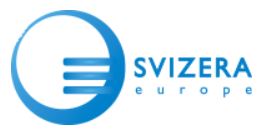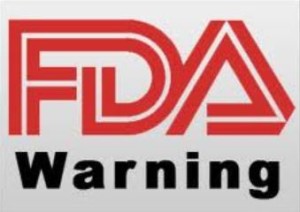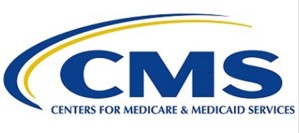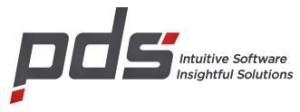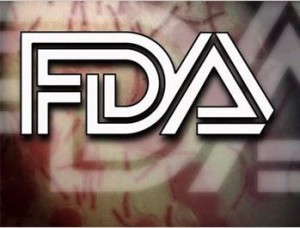- Sanofi science chief on Zika: It’s time to disrupt traditional vaccine development (fiercevaccines.com)
The World Health Organization has warned that the Zika R&D frenzy may not culminate in a vaccine in time for the current outbreak, but Sanofi Chief Scientific Officer Gary Nabel won't take that for an answer. Nabel says it can be done, but it means turning the traditional vaccine development model on its head...In an interview...Nabel highlighted that the classic response to emerging and infectious diseases, such as MERS and Ebola, has been inadequate...We just run from one crisis to another…That's no way to protect the world's population...The traditional vaccine development timeline typically takes 5 years or more to produce a marketable vaccine... To have a chance at accelerating this for emerging diseases, biotechs and pharmas, regulators and government agencies need to come together and unpack this model, identifying where time can be saved and exploring different ways to go about clinical trials...(Nabel) identified WHO as "symptomatic of the problem." While it has "the best of intentions," it doesn't have the wherewithal to follow through...The agency has declared Zika a global public health emergency and in February called for $56 million in funding to combat the virus. Just over a month later, only $3 million--5%--in funding has trickled in...
- India defends right to issue drug ‘compulsory licenses’ (reuters.com)
India has defended its right to grant licenses allowing local firms to override patents and make cheaper copies of drugs discovered by big Western drugmakers, and said reports to the contrary were "factually incorrect"...The Commerce Ministry statement comes weeks after...media in India quoted the...U.S.-India Business Council, as saying India had given private assurances that it would not grant such "compulsory licenses"..."In this regard, it may be noted that India has a well-established TRIPS (Trade-Related Aspects of Intellectual Property Rights) compliant legislative, administrative and judicial framework to safeguard IPRs (intellectual property rights). Under the Doha Declaration on the TRIPS Agreement Public Health, each member has the right to grant compulsory licenses and the freedom to determine the grounds upon which such licenses are granted."...The USTR (U.S. Trade Representative) has placed India on its "priority watch" list for two years in a row, saying the country's patent laws unfairly favor local drug makers. A legal provision that allows granting of "compulsory licenses" has been a key bone of contention.
- WHO suspends TB drugs from big India supplier on quality fears (reuters.com)
World Health Organization has suspended the approval of tuberculosis drugs made by India's Svizera Labs, a major supplier to developing countries, following an investigation into standards...The United Nations agency, which acts as a drug watchdog in markets lacking robust local regulation, said on Friday it had suspended all TB products made at Svizera's Mumbai site because manufacturing standards and quality management were unreliable...It also said independent experts should retest batches of medicine already on the market and it might be necessary to recall supplies, depending on the outcome of those tests...The move is a fresh blow for India's pharmaceuticals industry, which supplies cheap generic medicines to countries worldwide but has been tarnished by a series of quality problems in recent years, denting confidence in its products...The WHO plays a critical role in monitoring drug quality in poorer countries through its Prequalification of Medicines Program, which ensures that treatments supplied by U.N. agencies such as UNICEF are of acceptable quality.
- FDA warns India’s Emcure Pharma, cites repeated data fudging at plant (reuters.com)
Food and Drug Administration has warned Indian generic drugmaker Emcure Pharmaceuticals, saying it repeatedly fudged test records at its plant in western India, in another case of a pharmaceutical firm in the country facing such action...the FDA...found "significant violations" of standard manufacturing practices...The agency had already banned imports from the plant...except for some drugs...It is one of 42 drug-making factories in India that the FDA has banned in recent years as it stepped up inspections of foreign suppliers. The increased scrutiny has hit growth at Indian companies the hardest, as the country supplies nearly 40 percent of the medicines sold in the United Stares...We observed multiple examples of incomplete, inaccurate, or falsified laboratory records...The fabricated records were of tests that Emcure was required to conduct to ensure proper environmental control was maintained while aseptic filling of drug batches, so that the products wouldn't become contaminated...The company has 15 days to respond to the FDA's letter on the corrective actions it will take on the concerns raised.
- Poland to ban prescription-free emergency contraception (reuters.com)
Poland's ruling conservatives plan to reinstate a prescription requirement for "morning after" emergency contraceptive pills, a move critics say reflects Catholic Church pressure and may lead to unwanted pregnancies...the...Law and Justice party has taken steps to redesign Poland's young democracy to reflect the country's traditional Catholic values...The party has already said it will end state funding for in-vitro fertilization, saying it is too expensive. The powerful Polish Catholic Church strongly opposes IVF, as well as morning after pills...There is now just one morning after pill available in Poland without a prescription to women 15 and over. It became available over the counter early last year, following a decision of the European Commission to authorize its prescription-free sale...Polish health ministry wants to reinstate the prescription requirement...
- FDA announces enhanced warnings for immediate-release opioid pain medications related to risks of misuse, abuse, addiction, overdose and death (fda.gov)
New safety warnings also added to all prescription opioid medications to inform prescribers and patients of additional risks related to opioid use...Food and Drug Administration...announced required class-wide safety labeling changes for immediate-release opioid pain medications...the FDA is requiring a new boxed warning about the serious risks of misuse, abuse, addiction, overdose and death...actions are among a number of steps the agency recently outlined in a plan to reassess its approach to opioid medications. The plan is focused on policies aimed at reversing the epidemic, while still providing patients in pain access to effective relief.
- How Medicare Part B ‘Value-Based Pricing’ Would Work (realclearhealth.com)Obama proposal to revamp Medicare Part B faces more opposition (statnews.com)
...Centers for Medicare & Medicaid Services spends $20 billion a year for drugs under Part B, which are those given in doctors’ offices and hospital outpatient centers. Many cancer treatments are provided that way, as are some treatments for rheumatoid arthritis, macular degeneration...Under a proposed rule, different methods would be tried in selected geographic areas over a five-year test period. Some of these experiments would begin this year, with others added in 2017...Dubbed "value-based pricing," such largely unproven ideas are the latest tactics being tried to slow growth in prescription drug spending amid rising public alarm about drug prices...The goal is to test whether alternative approaches will lead to better value...There is no perfect payment system, they all have upsides and downsides...What we don’t want to do is create a world where doctors only prescribe the cheapest stuff even if not in the interest of the patient...Here are four concepts the government is investigating:
- Cut drug reimbursements for doctors and outpatient hospital centers.
- Level payments.
- Tie payments to effectiveness.
- Cut patients’ out-of-pocket costs.
- Obamacare Was Going to Lower Health Care Costs. What Actually Happened. (dailysignal.com)
Has Obamacare Reduced Costs?...Those family cost savings, of course, have not materialized...the health care cost curve is still on an upwardly mobile trajectory...Centers for Medicare and Medicaid Services data show that total per capita health insurance spending will rise from $7,786 in 2016 to $11,681 in 2024. Looking at the future of employer-based health insurance costs, the Congressional Budget Office (CBO) projects that job-based premiums are poised to increase by almost 60 percent between now and 2025...the Affordable Care Act...calls for sustained payment cuts to the popular Medicare Advantage program. It also has scheduled some big Medicare payment reductions over the next ten years for hospitals, nursing homes, home health agencies and even hospice care programs...Medicare trustees report that, if policymakers really go through with these Affordable Care Act provisions, 50 percent of America’s hospitals, 70 percent of the nation’s nursing homes and 90 percent of the nation’s home health agencies will be operating in the red in the next 24 years...This...will jeopardize seniors’ access and quality of care.
- SENDing data to meet new FDA standards (outsourcing-pharma.com)
According to PDS (PDS Life Sciences), SEND Express is a "turnkey solution for the generation of Standard for Exchange of Nonclinical Data datasets."...We aggregate and harmonize data from multiple organizations, information systems and file formats...to produce one set of harmonized SEND files, including define.xml and define.pdf, as required by the FDA...The platform's launch parallels the FDA's deadline for standardized electronic data submissions, which will require all datasets from studies supporting new drug applications, biologics license applications, and abbreviated new drug applications to be submitted in SEND format by Dec. 17...Having an industrywide, harmonized model allows for efficient analysis by regulatory authorities...The common formats assist in enabling the exchange of nonclinical data within companies and consortiums...this consistency of data makes it easier for vendors to develop tools that can use this data...
- FDA changes policy to prevent the next Martin Shkreli (statnews.com)
...the Food and Drug Administration...made a policy change that may prevent companies from pulling a Martin Shkreli...The agency plans to expedite reviews of applications for generic drugs where only one treatment is currently sold. The shift was prompted by public outrage that erupted last fall when Turing Pharmaceuticals...bought a life-saving drug called Daraprim and promptly jacked up the price by 5,000 percent...We identified a gap and were able to identify a path forward...The change being made (allows the agency) to capture circumstances when the only approved product on the market is a generic drug...Even though Turing does not hold a patent on the medicine...company was able to increase the price as it did because there was no generic competition. The drug maker runs a closed distribution system, and as a result, Turing has a monopoly on Daraprim...This should provide a faster way to inject competition in the marketplace, so that the price gougers can’t get away with what they’re doing...the policy change is retroactive, which means the agency will review pending applications to see if any merit an expedited review.



